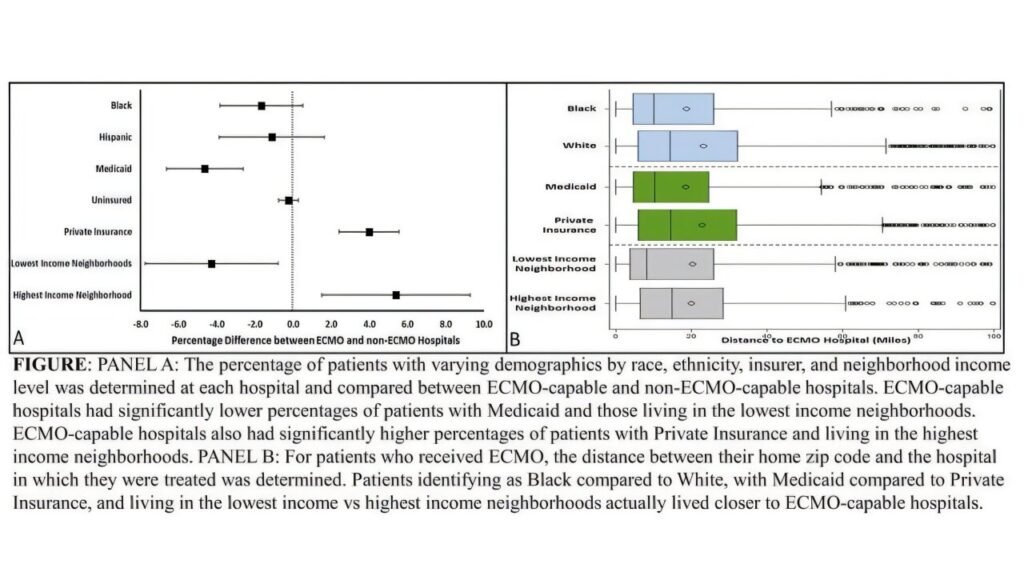Use of extracorporeal membrane oxygenation (ECMO) continues to rise, but this advanced form of life support is often not provided to patients equitably. New research published at the ATS 2025 International Conference confirmed that disadvantaged patients are less likely to receive ECMO, even though they live closer to hospitals that offer it.
The paper is published in the American Journal of Respiratory and Critical Care Medicine.
The study offers new insights to better understand and address health care disparities. First author Gwenyth L. Day, MD, research fellow in pulmonary and critical care at the University of Colorado, stated that the findings raise important questions about why some patients are more likely to end up at hospitals without ECMO capabilities even though they are closer.
ECMO is a form of advanced life support where a machine takes over the work of both the heart and lungs outside the body. It is a high-cost intervention not available in all hospitals.
Previous studies had found disparities in patient selection, prompting researchers to investigate if geographical location played a role in determining ECMO access.
The study compared patients who received ECMO to those treated with mechanical ventilation only, as well as hospitals with and without ECMO capabilities, calculating patient travel distance to the nearest ECMO hospital.
Disadvantaged patients, including those identifying as Black, with Medicaid, or in low-income neighborhoods, were less likely to receive ECMO, despite living closer to ECMO-capable hospitals. Hospitals with ECMO capabilities tended to have more patients with private insurance and from higher-income neighborhoods.
The study emphasizes the need for guidelines to mitigate bias in ECMO selection and supports funding for ECMO capabilities in safety net hospitals. A follow-up study is planned to investigate transfer practices as a potential driver for disparities.
More information:
G.L. Day et al, Access as a Driver of Disparities in Patient Selection for Extracorporeal Membrane Oxygenation, American Journal of Respiratory and Critical Care Medicine (2025). DOI: 10.1164/ajrccm.2025.211.Abstracts.A7365
Provided by American Thoracic Society (ATS)


